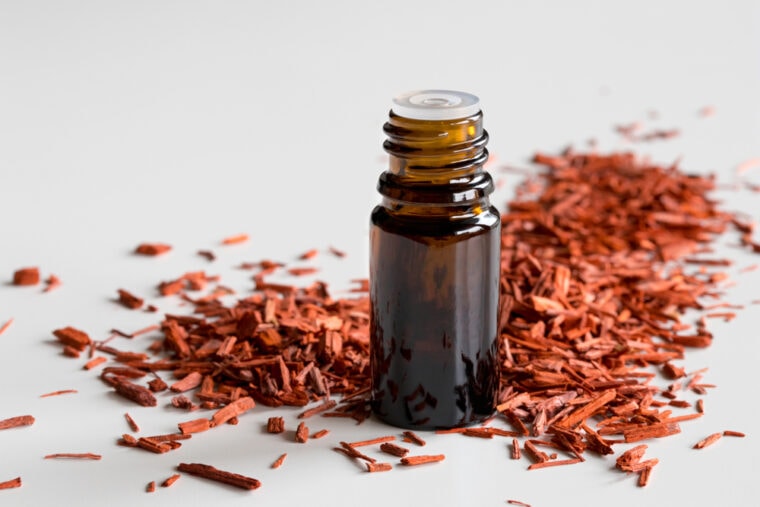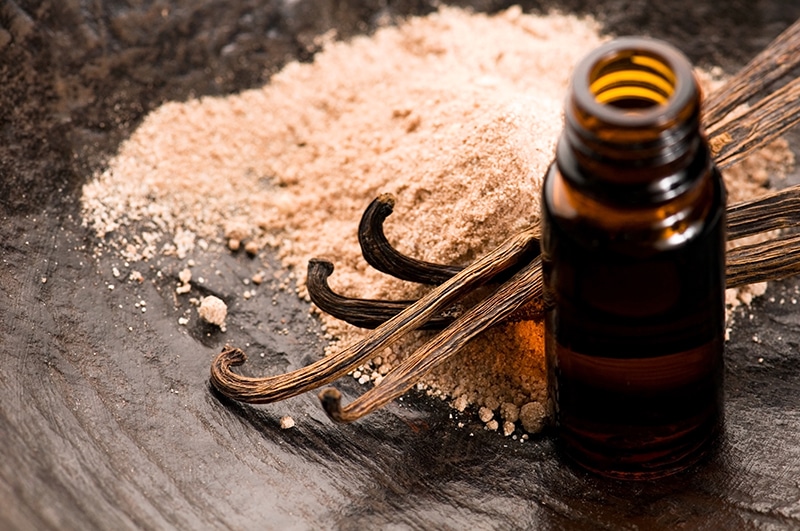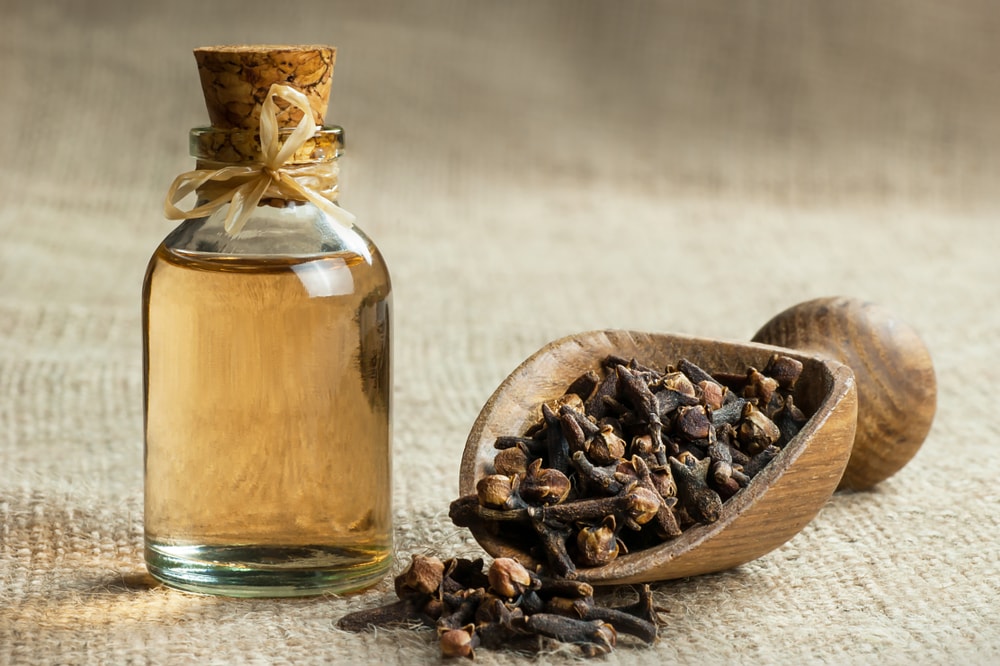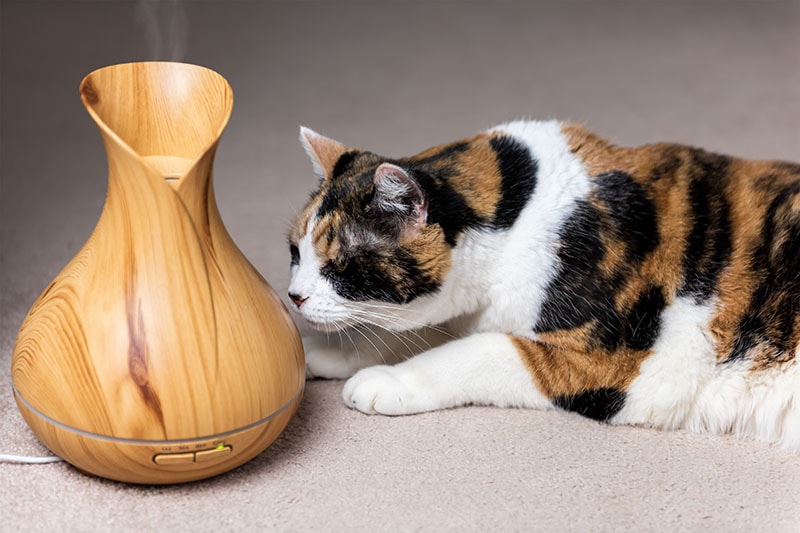
Click to Skip Ahead
Essential oils and other fragrance-smelling objects can make your home smell wonderful and pleasant. Many people like to use such items to freshen up the odors inside their homes when they have cats. However, is this safe? One such wood used for essential oils and incense is sandalwood, and it is not safe for cats. In fact, sandalwood is downright toxic.
If you’re a cat owner and wondered if it’s safe to use this wood for such purposes, now you know it’s not safe for your cat. Let’s explore further to find safer alternatives to use around your kitty for a fresh-smelling home and what to avoid.
What Is Sandalwood?
Sandalwood is a tree or large shrub with an earthy and woody fragrance. It is often used to make essential oils, incense, perfumes, cosmetics, and more. Sandalwood describes a number of smaller trees belonging to the genus Santalum, and it’s been used for centuries in India, its native land, for its anti-inflammatory, antimicrobial, and antiproliferative properties. You can also find this tree or plant in Hawaii and Australia.
The flowers and wood of sandalwood are harvested when the tree is between 10–30 years old due to increased potency of the oils with age. In Hawaii, Australia, and India, the leaves and bark are used to make laundry soap and medicated shampoo to treat lice and dandruff, and they are also used to treat body aches and wounds.

Is Sandalwood Essential Oil Safe to Use Around My Cat?
Essential oil made from sandalwood is toxic to cats if ingested. The problem with cats is they can walk by an essential oil diffuser and easily get the oil on the fur. As all cat owners know, cats are expert groomers and groom constantly. So, when a cat licks the fur, the essential oil can become ingested and cause oral and skin irritation.
Another issue with using essential oils around cats is their inability to metabolize the chemicals the scents emit. Cats have a lower number of certain liver enzymes compared to humans, which causes increased risk of toxicity to many seemingly harmless items..
What Other Essential Oils Are Toxic to Cats?
Many essential oils are used for aromatherapy, but many are toxic to use around your kitty. It’s tempting to use essential oils when you have a cat due to litter box smells, which can be rather unpleasant if not cleaned often, but in doing so, you’re putting your cat at risk.
If you just purchased an oil diffuser, you don’t have to toss it just yet. You can still use the essential oils mentioned above if you have a cat, but you need to take extra precautions if you choose to do so.
The only way to safely use these oils if you’re a cat owner is to place the diffuser in a room your cat cannot access. The room should be well-ventilated with no way your cat can enter and be exposed.

What Are Signs of Essential Oil Toxicity to Cats?
It’s important to know the signs of essential oil toxicity in case your cat is accidentally exposed. It only takes a small amount on the skin or a couple of licks to become problematic.
If you notice any signs of toxicity, it’s vital to contact your veterinarian immediately for treatment.
Is It Safe to Use Sandalwood Incense Sticks Around My Cat?
Unfortunately, burning incense is also harmful to your cat. The smoke from burning incense sticks can cause respiratory problems in cats. Cats are sensitive to smoke, and exposure can cause coughing, watery eyes, sneezing, and congestion. Exposure can also trigger asthma in cats.

What Are Safer Alternatives to Use to Keep My House Smelling Pleasant?
While it’s tempting to use essential oils and incense, whether sandalwood or a different fragrance, it’s best to refrain from these options for the safety of your feline companion. However, you can try a few other ways to freshen up your home that are also safe for your cat.
Air Purifier
Air purifiers are an excellent way to keep your home smelling fresh. They don’t just mask the odor; rather, they absorb pet smells from any room. However, ensure you buy one with an activated carbon filter. Other filters, like HEPA filters, only rid the air of pet dander but don’t eliminate odors. Air purifiers are pricey, but investing in one is a superb way of ridding your home from pet odors, and it’s safe for your cat.

Clean the Litter Box Regularly
Keeping the litter box clean and scooped often can help cut down on litter box smells. It’s recommended to scoop the litter box at least twice daily and refill it with fresh litter as needed. A rule of thumb is to keep the litter at a height of 2–3 inches.
Another excellent way to keep smells down is to dump old litter and replace it with new litter once a month. After discarding the old litter, clean the empty litter box with hot water and a mild, unscented soap. Scrub thoroughly and rise before adding new litter.
Our Favorite Products Incorporating Hepper's Advanced Bio-Enzyme Pet Stain & Odor Eliminator Spray and Litter Deodorizer fights even the toughest litter box smells. First, by keeping your litter box free of stuck-on messes each time you replace the litter, and second, by neutralizing odors upon contact.
Hepper Advanced Bio-Enzyme Pet Stain & Odor Eliminator Spray
Hepper Advanced Bio-enzyme Deodorizer & Litter Additive
Eliminates smells
Removes stains
Powdered/dry form
Liquid/wet form
Works on a variety of surfaces
Works inside your cat's litter
At Pet Keen, we've admired Hepper for many years, and decided to take a controlling ownership interest so that we could benefit from the outstanding designs of this cool company!
Conclusion
While sandalwood gives off a pleasantly warm and earthy scent, it’s unsafe to use around your cat. Sandalwood is commonly used to make essential oils and incense sticks, but neither is ideal for cat owners. Essential oils can be problematic for cats if ingested from grooming and can cause oral and skin irritation and liver issues. Incense is problematic due to the smoke, so it’s best to avoid these items altogether.
Remember to clean the litter box regularly and use an air purifier with an activated carbon filter for safer alternatives to essential oils and incense.
Featured Image Credit: Madeleine Steinbach, Shutterstock








